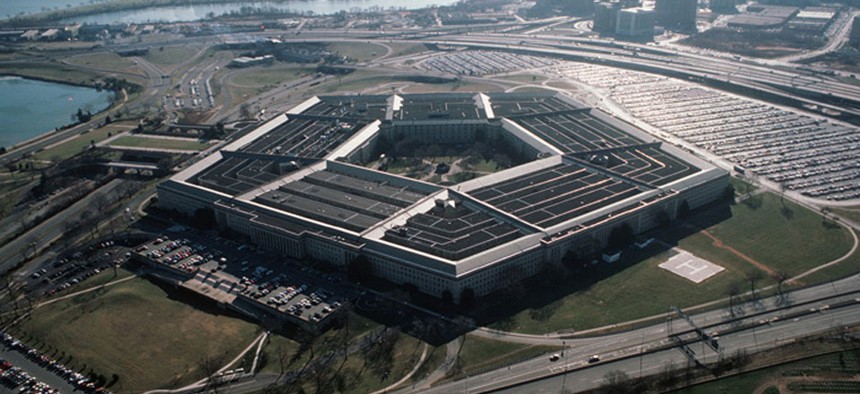
Defense Department file photo
Obama Budget Would Cut 3,500 Pentagon Civilian Jobs
Budget analyst says TRICARE reform will be an uphill battle.
President Obama’s fiscal 2016 budget to be released Monday is expected to propose $35 billion more in defense funding than the current spending caps would allow, as well as a reduction of 3,500 civilian positions, according to a think tank analyst and news reports.
The expected $534 billion Pentagon top line would constitute a 6 percent to 7 percent increase plus additional war funding, Todd Harrison, a senior fellow at the Center for Strategic and Budgetary Assessments, told reporters.
Though both parties currently want to boost defense spending and relieve pressure from caps under the 2011 Budget Control Act, “the process matters,” Harrison said, suggesting that even with Republican control of both houses of Congress, many compromises would be needed to avoid the threat of automatic cuts under sequestration, which is set to resume in 2016.
Chances for acquisition reform have improved with the ascent of new Republican chairmen of the Armed Services panels, he said. “But I wouldn’t expect deep or systemic change, more of a tweak here and there.” The leaked plan to cut 3,500 civilians from headquarters staff “is not much out of a workforce of 800,000,” Harrison added, noting there is also pressure to expand the acquisition workforce.
He endorsed an op-ed in Friday’s Wall Street Journal by American Enterprise Institute defense analyst Mackenzie Eaglen bemoaning the fact that the size of the Pentagon’s civilian workforce has grown by nearly 7 percent since 2009 while military personnel have been trimmed by 8 percent.
“The reason civilian cuts have not been happening is that it’s like asking the civilian workforce to cut itself,” Harrison said. “Political appointees bring in their own staff and then, if they want a reduction in force, they realize it’s a lengthy process based on tenure not performance. That means cutting the people they just brought in,” he said. “If Congress wants to take this on, it needs to tackle the RIF system and get rid of tenure as the No. 1 factor.”
The proposed reforms to military pay and benefits released this week by the congressionally-mandated Military Compensation and Retirement Modernization Commission came too late for inclusion in Monday’s budget, Harrison said. But its proposed changes in TRICARE, such as moving dependents of retirees to commercial health plans, would seem more popular among the rank and file than cuts in commissaries, housing allowances or cash, he said, and they would probably be enough to flatten the growth curve in cost-per-service members of recent years.
“If I were DoD, I’d say we had some recommendations, but scratch that, this commission has a better idea,” he said. Many military retiree organizations, however, have opposed changes in TRICARE, Harrison said. “If Congress talked to troops, not retired officers, they’d get a different story.”
Harrison said he doesn’t think sequestration will be allowed to kick in at the Pentagon, and that Congress by the end of the fiscal year will likely have agreed on a plan. Addressing President Obama, he said, “If you submit a budget that’s $35 billion over the caps, you’re ceding to Congress how to make the cuts.”







